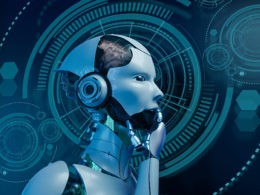Cyber threats constantly evolve, making it challenging for traditional security measures. This type of protection uses AI to make security systems more intelligent and more adaptable. These systems can detect and respond to threats by analyzing data and learning from patterns in real-time.
Cognitive security isn’t like the old ways. It tackles every part of cybersecurity, from stopping threats to fixing them. Yet, if you still want to do things by yourself, you can use an opt-out guide for manual data removal. This approach helps people dodge cyber problems and safeguard their online goods better.
Understanding Cognitive Security?
Cognitive Security (COGSEC) is a defense against attempts to manipulate people. It also affects how individuals make decisions, especially in cybersecurity. It uses AI and machine learning (ML) technologies that mimic human thinking to spot safety threats.
This type of protection research combines insights from different fields. Some examples are:
- How people make sense of information
- How people remember new things
- How people learn new things
It helps develop better ways to protect against cyber threats that exploit human behavior.
Cognitive security encompasses practices and methodologies to defend against manipulations of human cognition in cybersecurity. It leverages AI to respond adaptively and intelligently to evolving cyber threats. Key components include:
- Machine learning (ML)
- Natural language processing (NLP)
- Pattern recognition
All these enable cognitive security systems to analyze data and identify potential threats.
Adaptive Threat Detection and Prevention
Cognitive security leverages AI to enhance threat detection and prevention. It does this by analyzing real-time patterns, anomalies, and behaviors. This allows the systems to identify potential threats more effectively. Thus, they can better respond to emerging risks. Their adaptive nature sets these systems apart.
A protection system evolves or learns as new dangers emerge. Simply put, it’s always adaptively learning to deploy the latest information to protect against the latest cyber-attacks. Security systems evolve their defenses according to the latest data points and insights.
This continuous flexibility means a protection system isn’t just today’s but tomorrow’s best defense against cyber attacks. This is why these technologies are the future of cybersecurity.
Intelligent Incident Response and Mitigation
AI-driven protection enables intelligent incident response by automating response mechanisms. This automation reduces response times and minimizes potential damage. It prioritizes and categorizes incidents for efficient mitigation. AI’s ability to analyze data and learn from incidents enhances the effectiveness of incident response strategies. Thus ensuring a rapid and targeted response to incidents.
Continuous Learning and Improvement
Shield frameworks emphasize continuous learning. AI algorithms analyze historical data and learn from incidents to improve over time. This self-improving nature allows protection solutions to adapt dynamically. It evolves cyber threat analysis, making it more effective in protecting against emerging risks. By continuously learning and changing, these systems can maintain high security.
Closing Off
Cognitive protection uses AI to defend against complex cyber threats. By using these technologies’ capabilities, like pattern recognition, it can adapt and respond to new dangers.
Yet, AI also brings new challenges like deepfakes and privacy issues. We need a balanced approach that combines technical advancements with ethical considerations. AI continues to shape cybersecurity, while at the same time, we need to use it responsibly and transparently.












